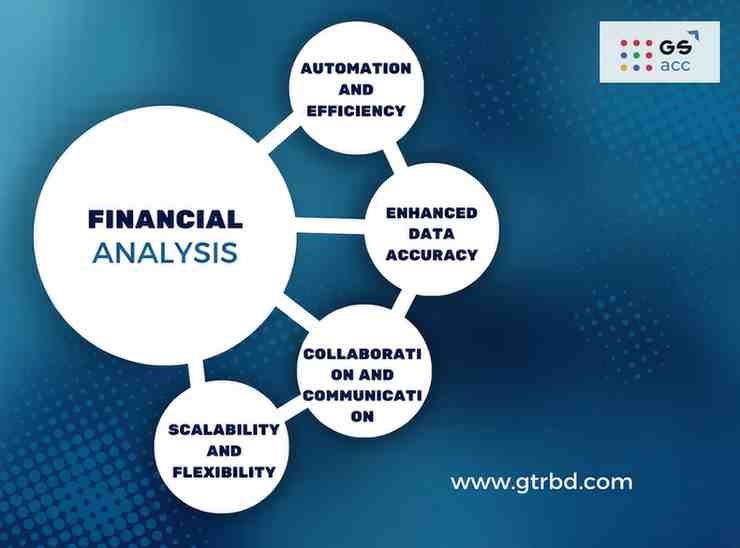
In today’s data-driven business world, the ability to analyze financial information effectively is crucial for making informed decisions and achieving sustainable growth. However, for many businesses, traditional manual accounting methods can be time-consuming, prone to errors, and inefficient, hindering their ability to gain valuable insights from their financial data. This is where accounting software comes in, offering a powerful solution to streamline analysis and unlock the full potential of your financial data.
Key Features of Accounting Software for Analysis:
- Automated Data Entry: Manual data entry is prone to errors and time-consuming. Accounting software automates the process, reducing the risk of errors and saving valuable time.
- Real-Time Reporting: With real-time access to financial data, businesses can generate reports instantly, allowing for timely analysis of key performance indicators (KPIs) and financial metrics.
- Customizable Dashboards: Accounting software often provides customizable dashboards that allow users to visualize data in a way that is meaningful to them. This feature enables quick insights into the financial health of the business.
- Integration Capabilities: Many accounting software solutions offer integration with other business applications such as CRM systems, inventory management software, and project management tools. This integration allows for a holistic view of business operations, facilitating comprehensive analysis.
- Forecasting and Budgeting Tools: Advanced accounting software includes forecasting and budgeting tools that enable businesses to predict future financial performance based on historical data and market trends. This helps in strategic planning and decision-making.
- Compliance and Security: Accounting software ensures compliance with regulatory standards and provides robust security measures to protect sensitive financial data. This instills confidence in stakeholders and minimizes the risk of fraud or data breaches.
Here’s How Accounting Software Simplifies Financial Analysis:
1. Automation and Efficiency:
- Data Entry: Accounting software automates tedious data entry tasks like recording transactions, reconciling bank statements, and generating invoices. This frees up valuable time for you and your team to focus on higher-level analysis and strategic planning.
- Data Organization: The software automatically categorizes and organizes financial data, eliminating the need for manual sorting and classification. This ensures accurate and consistent data representation, making analysis easier and more reliable.
- Real-time Updates: Most accounting software offers real-time access to your financial information. This allows you to analyze data as it happens, identify trends and anomalies quickly, and make informed decisions without waiting for month-end reports.
2. Enhanced Data Accuracy:
- Reduced Errors: Manual data entry is prone to errors, which can significantly impact the accuracy of your financial analysis. Accounting software minimizes these errors by automating data entry and providing built-in validation checks.
- Improved Consistency: Consistent data categorization and organization ensures that your financial information is comparable across different periods and departments, leading to more reliable and insightful analysis.
- Increased Data Integrity: Accounting software helps maintain data integrity by providing secure storage and access controls. This ensures the reliability of your financial data and protects it from unauthorized access.
3. Advanced Analysis Tools:
- Reporting and Analytics: Most accounting software offers built-in reporting and analytics tools, allowing you to generate various reports, including income statements, balance sheets, cash flow statements, and more. These reports can be customized to meet your specific needs and provide valuable insights into your business performance.
- Data Visualization: Accounting software often includes data visualization tools like charts, graphs, and dashboards. These visual representations help you easily identify trends, patterns, and outliers within your financial data, making analysis more intuitive and efficient.
- Comparative Analysis: Many software solutions allow you to compare your financial performance against industry benchmarks, historical data, or custom-defined parameters. This comparative analysis helps you understand your position within the market and identify areas for improvement.
4. Collaboration and Communication:
- Real-time Collaboration: Accounting software often features cloud-based functionalities, allowing authorized users to access and analyze financial data from anywhere, anytime. This fosters real-time collaboration and communication within your team, facilitating informed decision-making.
- Improved Stakeholder Communication: Easily generate clear and concise financial reports through the software, simplifying communication with stakeholders like investors, lenders, and management.
5. Scalability and Flexibility:
- Growing Business Needs: As your business grows, your accounting needs become more complex. Accounting software can easily scale to accommodate your increasing volume of transactions and data complexity.
- Customization: Many accounting software solutions offer customization options to fit the specific needs and workflows of your business. This level of flexibility ensures that the software can adapt to your changing requirements.
By embracing accounting software, businesses can unlock a world of benefits for financial analysis, including:
- Faster and more accurate decision-making
- Improved financial visibility and control
- Enhanced profitability and growth
- Reduced time spent on manual accounting tasks
- Increased efficiency and productivity
Ultimately, accounting software plays a pivotal role in simplifying financial analysis for businesses of all sizes. By automating routine tasks, providing real-time access to data, and offering advanced analytical tools, accounting software empowers organizations to make informed decisions and drive sustainable growth. Investing in the right accounting software is not just a matter of convenience but a strategic decision that can have a significant impact on the success of your business.
financial analysis financial analysis with accounting software How Accounting Software Simplifies Financial Analysis